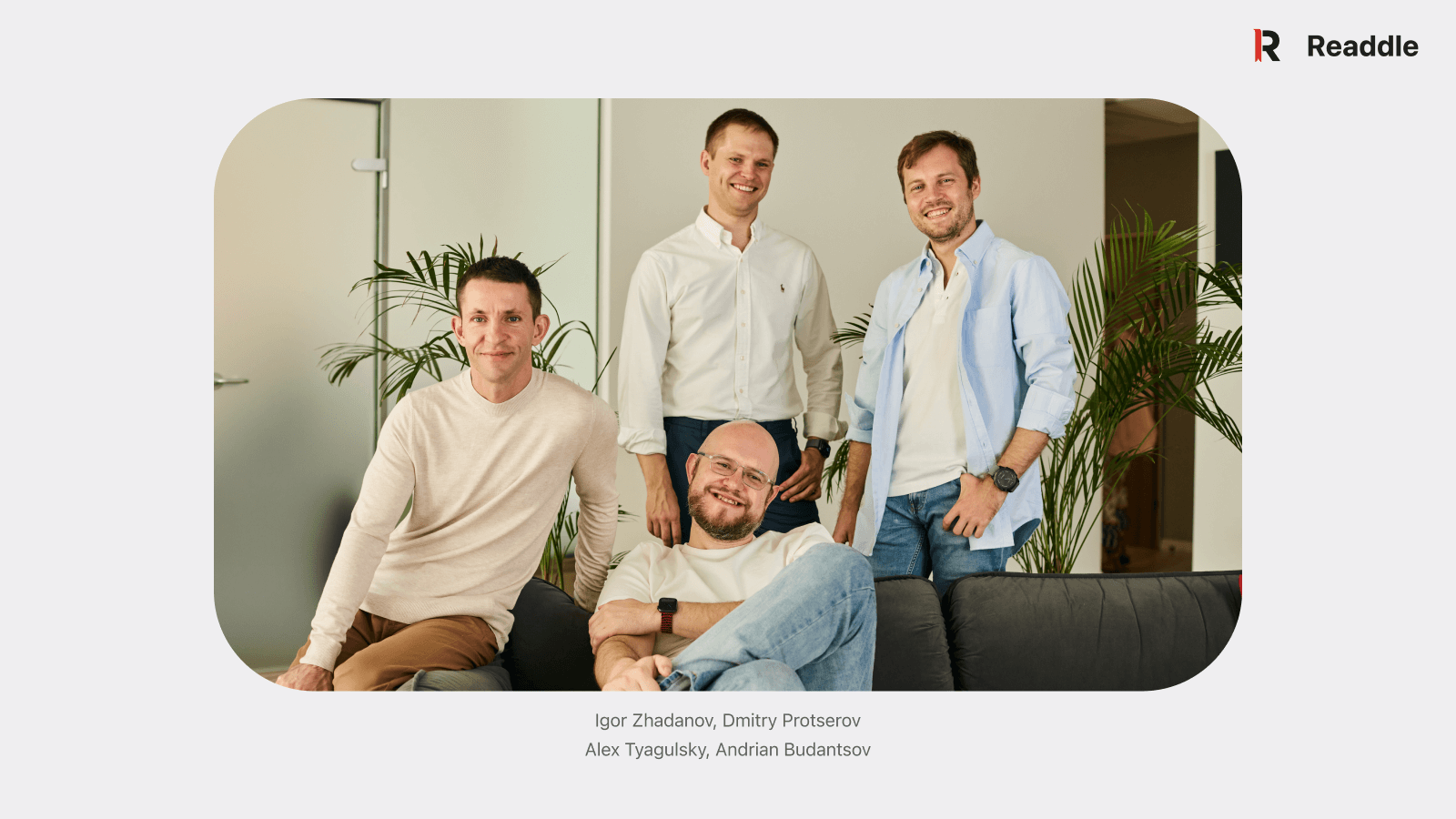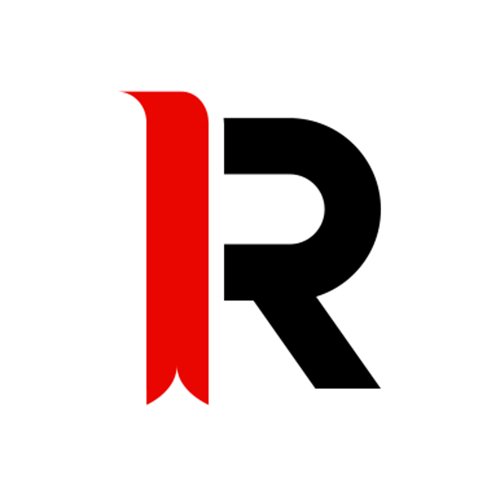Readdle started out as a four-person startup in 2007, but we've proudly grown to a global, award-winning productivity brand, with over 200 million downloads. So, how did we scale?
Our co-founder and CEO Igor Zhadanov recently unpacked the journey with Acumen Media's "A Moment With" program, currently featuring on CBS News. Below is a taster of the interview, covering Readdle's evolution, culture, and Igor's personal leadership style.
What motivates you?
I’m a builder, so I like to take a rough idea and make it into something tangible. From playing chess and working with computers to doing different math puzzles, I have always loved to connect the dots between different complex touch points.
What’s your favorite project so far?
That would be a team. We’ve built more than 300 people across the globe in over 30 locations who make amazing products.
When did you get your hands on your first piece of major tech?
In 1997 our parents borrowed money to buy the first computer for me and my brother Denys. It was a huge amount of money for them at a time, several years of my Dad’s wages.
They brought it home, and the very next morning, they had to send it back to the shop because I was trying to tweak it overnight, and it stopped working!
When I have time, I like to tinker with products. I like to see how things work. Whether it’s people in a team, devices, or business models. That really drives me personally.
How did Readdle start?
When Apple announced the first iPhone in 2007, my co-founders and I got our hands on a device quite early. We saw that the hardware was remarkable, but the software was not yet there. In particular, you could not read a book or document on the iPhone.
We decided to fix that by creating a document file reader. Hence, the name of the company ‘Readdle’ which we launched in 2007.
In 2008, Apple launched the App Store. We were selected as one of the 100 developers on the planet to have our products there.
Back then, we didn’t think how big a business we wanted to build, or how much we could scale. We fundamentally hoped we could build something meaningful for others, and hopefully do it better than anyone else.

What is Readdle’s product success rate?
In total, we’ve launched 40 products over 16 years, and right now, we’re left with five. So you can say our success rate is slightly above 10 percent!
However, last year (2022), we hit 200 million downloads of our products worldwide. That means that for each and every download, someone has taken the time to evaluate our products and make a decision to install and use them. That means a lot to us.
That said, if there is a mistake, issue, or gap in the software market, we’ve probably done it. And that’s ok as long as you learn.
Some of our products, like PDF Office in 2013, were marketed too early. Back then, we launched it with a subscription model, ahead of Adobe or Apple. Unfortunately, the market refused to accept subscription fees.
Had we launched it three years later - when subscriptions became significant - it could have been a highly successful product. But we had to shut it down.
How do you handle failure?
It is painful, it’s always painful. Because for each thing we ship there's lots of effort from many people who are genuinely trying to do their best. But we build a thick skin every time we go through it.
Simply speaking, we don’t ship junk. And we really want to build products that both we founders - and our family and friends - will enjoy using.
For example, with Spark [email client], we tackled a very complex problem of how to improve email across a range of professional use cases. We had to build a lot of internal prototypes - sometimes rebuilding it from scratch - to get it to a place where we were really happy to ship it to customers.
I’m happy to say that many of our products are now part of the Apple iOS ecosystem.
What’s your take on customer relations?
Every time a customer emails us and says they’ve got a problem, I’d like to personally say thank you because there are hundreds of people who have the same issue and don’t have a chance to write to us about it.
We also treat each customer as an individual. So, if someone writes in to say there’s a bug in one of our apps, we’ll reach out to them personally to acknowledge the problem, talk it through, and thank them.
Having that level of human support probably certainly costs money! We could have chatbots or FAQs to help people out. But we think it’s important to create trust.
What’s your biggest productivity tip?
I separate reaction and response. The reaction is typically emotional, immediate, and noisy. The response is what you think through and reflect on, and if you increase the response stage that is how you get productivity. I like time to think about tougher, bigger products instead of jumping straight on Slack.
Another tip is to make the most of travel time. I do 55 trips per year - a third of my time is spent in London; also Berlin, Silicon Valley, New York and Boston. My time on the plane is uninterrupted; I turn off wifi. It's a great opportunity for deep focus. When my assistant sees 20 or 30 emails leave my inbox, she knows I’ve been on a plane, and messages me to say, "How was your flight?”
What’s your take on the AI revolution taking place right now?
I’m happy about it because AI and technology in general have finally brought us to a point where a computer and software can figure out answers to questions that humans shouldn’t really waste time on.
In that sense, I’m actually a huge fan of automation, and exploring what AI can do in our systems. We’ve had AI in some of our products since 2016. We just didn’t expose it much.
In fact, AI has been around for decades, it used to be called machine learning and, prior to that, linear algebra.
Overall, this particular topic is like speculating on the original steam engine - there are lots of things we are not even aware of yet, but I’m optimistic and excited to see what happens next.
How do you switch off?
Defensive driving is my way to meditate. You race sideways around a circuit at 50 or 70 miles an hour. You have to concentrate, be fast and think through what’s going on. That intensity pushes me out of day-to-day work, and helps me shift my mind to being in the moment.
What’s the best piece of advice you’d give anyone wanting to start a company?
The main one is to go and do it. Even when you don’t have enough information, confidence or sources and backup. Because the moment when you have all that will never come.
Therefore, you have to get used to uncertainty and risk.
You should ask yourself would you regret not trying? And if the answer is yes, that’s the call to action.
Conclusion
For a deeper dive, don’t miss Igor Zhadanov's full interview on CBS News. Watch now to hear more about his journey, insights, and the future he envisions for technology and entrepreneurship.

